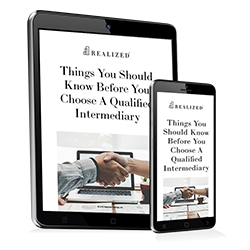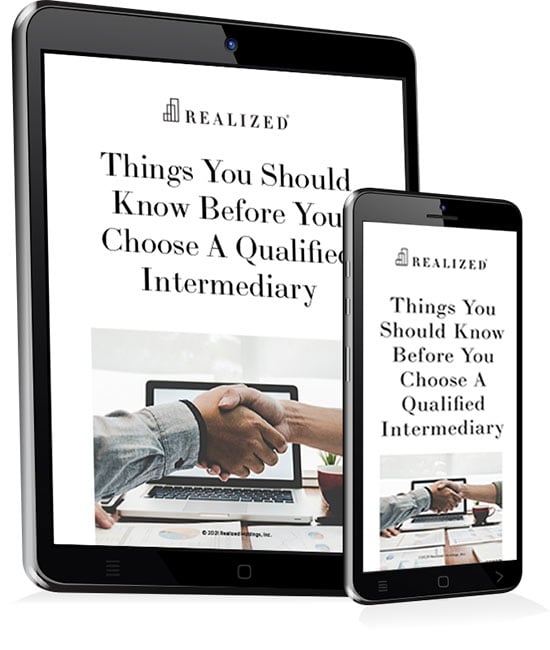
1031 exchanges provide tax-deferral benefits that can support long-term portfolio growth and estate planning goals. However, in order to complete the like-kind swap, you’ll need to work with entities like a qualified intermediary or an accommodator. These are the third-party entities that hold your funds between the sale of your relinquished property and the purchase of your replacement property until a replacement property is acquired.
When assessing accommodators, one common question among investors is this: Are they required to provide audited financial statements? No, they are not. Some accommodators will provide these statements, but you can’t expect all of them to do so. Understanding this distinction is important, particularly given the significant funds QIs handle during a 1031 exchange.
Understanding Qualified Intermediary Financial Statements
Financial statements generally reflect the business activities and financial performance of a company. Any entity can provide a financial statement to showcase the status of its earnings and expenses. Meanwhile, an audited financial statement is a financial statement that has been reviewed and verified by an independent certified public accountant (CPA). These audits follow generally accepted auditing standards (GAAS) and provide assurance that the company’s finances are presented accurately and without material misstatement.
While the presence of audited financials does not guarantee performance or eliminate risk, it may suggest a level of transparency and financial discipline that investors consider when evaluating potential QIs. This can be particularly relevant given that 1031 rules prohibit investors from holding sale proceeds directly—placing substantial trust in the intermediary to safeguard those funds.
Are Accommodators Required To Show Financial Statements?
Surprisingly, the IRS has rather lax regulations regarding qualified intermediaries. These entities are not required to get any licenses, nor do they need to be bonded or insured. This also means that accommodators are not required to show audited financial statements. Unless you ask, the intermediary doesn’t have to voluntarily provide these reports. As such, due diligence and caution become important.
Some qualified intermediaries operate with minimal oversight. Others may actively misrepresent their financial health, commingle client funds with their operating accounts, or even engage in fraudulent schemes. These issues could result in losing your ability to exchange or face a large tax bill.
Reasons To Ask for Audited Financial Statements
Here are a few reasons why audited financial statements matter for 1031 exchange investors.
- Transparency and Accountability: Financial reports independently reviewed by a certified public accountant (CPA) may offer greater visibility into the intermediary’s financial practices and help identify any red flags, such as undisclosed liabilities or inconsistencies.
- Indicator of Financial Discipline: While not a guarantee of stability, intermediaries that produce audited financials are often more likely to have established internal controls and financial reporting standards in place.
- Risk Awareness: When you’re placing hundreds of thousands or even millions in escrow, it’s reasonable to seek reassurance that the firm is operating with sound financial management and is not exposed to solvency risks that could jeopardize the transaction.
How Do You Ask for Audited Financial Reports?
Some qualified intermediaries will highlight the fact that they offer audited financial statements. However, if the accommodator isn’t offering one right away, you can simply ask them if they have audited financial statements available for review. A reputable company should be able to provide these reports upon request. Be wary of those who dodge the question or offer an unaudited report.
Wrapping Up: 1031 Exchange Accommodator Financial Statements
When evaluating qualified intermediaries for a 1031 exchange, financial transparency is one factor that may help you assess operational stability and risk. One step of your due diligence process is checking whether or not the company can provide audited financial statements. These documents can offer insight into how the intermediary manages its finances and whether it has processes in place to safeguard client funds.
Although audited financials do not eliminate risk, they can contribute to a more informed decision-making process—particularly when large transaction values are involved. Engaging qualified tax and legal professionals is also advisable to ensure your 1031 exchange is structured properly and managed with care from start to finish.
The tax and estate planning information offered by the advisor is general in nature. It is provided for informational purposes only and should not be construed as legal or tax advice. Always consult an attorney or tax professional regarding your specific legal or tax situation.
Article written by: Story Amplify. Story Amplify is a marketing agency that offers services such as copywriting across industries, including financial services, real estate investment services, and miscellaneous small businesses.
Sources:
https://www.investopedia.com/financial-edge/0110/10-things-to-know-about-1031-exchanges.aspx
https://www.business.com/articles/audited-financial-statement/



